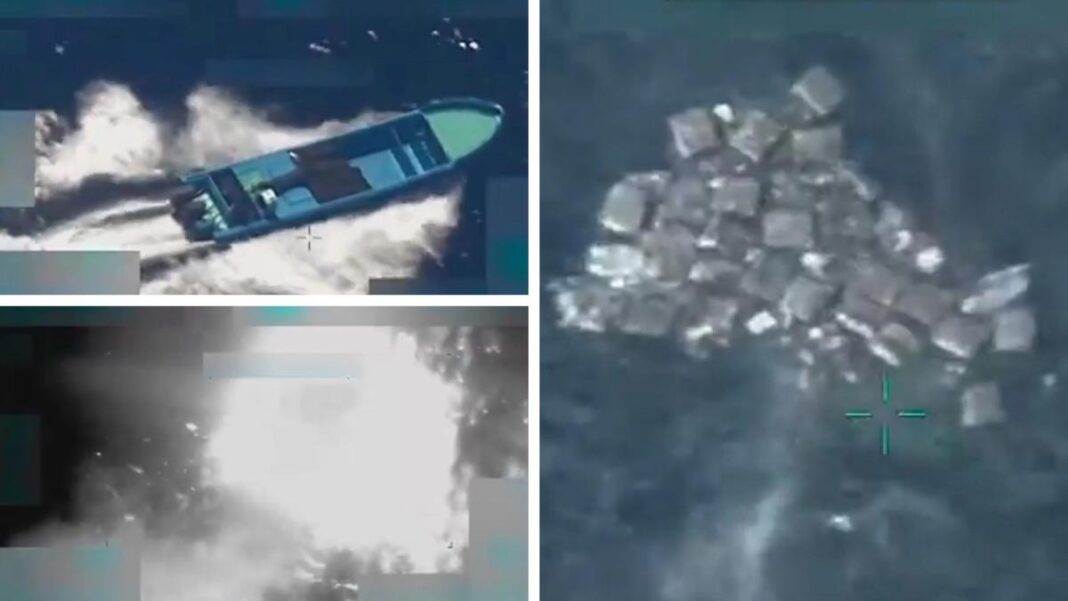Escalation of the U.S. Drug War
Recent actions taken by U.S. President Donald Trump and his Department of War have significantly intensified the battle against narcotics smuggling into the country. This renewed offensive includes the destruction of vessels allegedly transporting “narco-terrorists,” raising both security concerns and geopolitical tensions, particularly with Venezuela.
Lethal Strikes on Drug Traffickers
On a Wednesday, U.S. Secretary of War Pete Hegseth announced what he termed a “lethal kinetic strike” on a vessel associated with a Designated Terrorist Organization (DTO). This marked an escalation in the U.S. strategy against drug trafficking in the Eastern Pacific, following a series of similar operations in the Caribbean.
Hegseth indicated that this strike was not an isolated event; it was part of a broader campaign, with several operations occurring within weeks. Notably, this latest strike represents the first time such actions have extended beyond Caribbean waters, highlighting a shift in operational focus.
In a follow-up announcement, Hegseth confirmed that another strike had occurred soon after the initial one, demonstrating the ongoing commitment to this aggressive stance. He reported that three more “male narco-terrorists” had been eliminated in international waters, specifically accusing them of engaging in illicit narcotics smuggling along known trafficking routes.
Defining the Threat
The language employed by U.S. officials has been notably aggressive. Secretary Hegseth characterized individuals involved in these narcotics operations as akin to terrorists, suggesting a parallel to organizations like Al Qaeda.
He expressed an unwavering commitment to continue these strikes, asserting that these individuals are not merely drug runners but agents of chaos affecting U.S. cities. This rhetoric underscores a fundamental shift in how authorities are framing the drug trafficking issue—not merely as a public health crisis, but as a national security concern that necessitates military engagement.
Venezuela’s Response
Amid these escalating military actions by the U.S., Venezuelan President Nicolás Maduro issued a stark warning, declaring that Venezuela possesses 5,000 Russian anti-aircraft missiles. According to Maduro, these missiles are positioned strategically to ensure the nation’s sovereignty and to protect against U.S. aggression.
Maduro framed the U.S. military operations as a violation of Venezuela’s sovereignty and a precursor to increased hostility. His government claims that they are prepared to confront any actions deemed imperialistic, signaling potential ramifications for U.S.-Venezuelan relations.
In his remarks, Maduro stated, “We have no fewer than 5,000 [missiles] in key air defense positions to ensure peace.” This pronouncement suggests an escalation in rhetoric that could fuel regional tensions, positioning Venezuela as a formidable opponent against U.S. military incursions.
Implications of U.S. Strategy
The recent military escalations raise critical questions about the U.S. approach to drug smuggling and its implications for international relations. By adopting a militarized strategy, the administration is signaling a shift in how narcotics trafficking will be handled, emphasizing prevention through the use of force.
This approach risks further complicating relationships with countries like Venezuela that already feel threatened by U.S. actions. As the narrative of narco-terrorism evolves, so too does the potential for increased conflict in a region already fraught with tension.
Ongoing War on Drugs
The commitment to ongoing military strikes reflects a broader strategy to combat drug-related challenges. Hegseth’s declarations of relentless pursuit suggest that this war will not only continue but may escalate in the coming months. With such high stakes, the interplay between domestic drug policy and international relations is likely to be a defining theme of U.S. governance and foreign policy.
This new chapter in the war on drugs not only impacts the immediate geographic areas involved but also the geopolitical landscape of Latin America, illustrating how domestic issues can often bleed into international conflicts.



